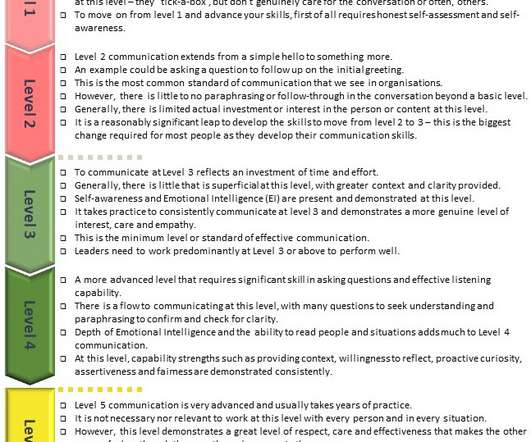Leaders: Tame the Brain’s Fight-or-Flight Response and Give Helpful Feedback
Great Leadership By Dan
AUGUST 14, 2014
HR professionals spend a lot of time preventing or dealing with the damage that occurs from avoiders, and companies lose big when talent isn’t developed and mistakes go uncorrected. Fear and Stress There are a number of reasons given for the feedback gap. So 95% of all leaders have room to grow in the feedback department.
























Let's personalize your content